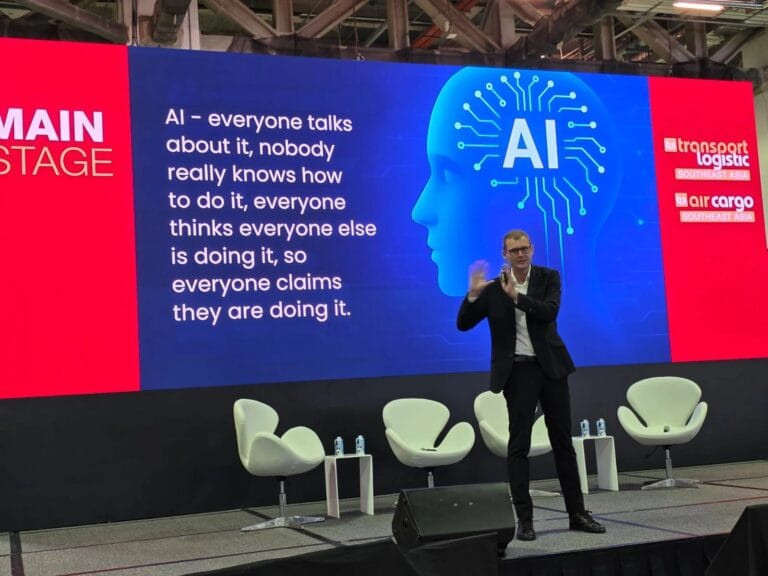For years, “resilience” in logistics has been an elusive target – something every boardroom aspires to but few achieve. In his opening keynote at air cargo Southeast Asia 2025, Radu Palamariu, Group CEO of Alcott Global, challenged the industry to redefine what resilience means in an age of volatility, automation, and consolidation.
Palamariu distilled resilience into three essentials: mindset, technology, and talent.
“Mindset first – because uncertainty is permanent. Technology second – because it’s never been faster or cheaper to deploy. And people last – because they are the ultimate differentiator.”
He added, “You can’t beat someone using pen and paper if they have world-class digital tools. But equally, the best software in the world is useless without the right leaders to implement it.”
In a sector defined by unpredictability, his message resonated with an audience of freight forwarders, airport operators, and logistics executives searching for balance between automation and adaptability.
“Technology will change everything we do,” Palamariu concluded. “The question is not whether we embrace it — but whether our people are ready to lead that change.”
Mindset before machinery
With so many uncontrollable variables, Palamariu argued, resilience starts with mindset. Quoting the story of Roger Bannister’s four-minute mile, he drew parallels to leadership under pressure: “Before Bannister, scientists said it was impossible. Then one man did it, and suddenly thousands could. We can’t control the disruptions, but we can control our outlook.”
He urged logistics leaders to stop viewing technology as prohibitively expensive or complex. “The limiting belief I see is that digital tools are only for the DHLs or DSVs of the world. That’s outdated. Today’s modular, scalable systems can be deployed in weeks and pay for themselves just as quickly.”
He cited examples of transport-management or invoice-reconciliation tools that deliver ROI within a month. “Technology has never been easier to implement — the bottleneck is belief,” he said.
The coming AI divide
Despite his caution about hype, Palamariu predicted AI will fundamentally reshape logistics within four years. “A consulting firm I work with expects to cut 10 percent of operating costs through automation and AI within 18 months,” he noted. “That 10 percent head-start becomes a competitive moat. You can’t simply wait and copy the first mover — they’re already more efficient and have more capital to reinvest.”
The implication, he said, is that companies must start experimenting now rather than waiting for “perfect clarity.” Early adopters that use AI for forecasting, route optimisation, or process automation will widen the gap against slower peers.
People at the core
Ultimately, Palamariu insisted, “technology alone won’t make a company future-proof — people will.” He praised firms like Maersk and PSA Singapore for pairing digital systems with intensive operator training. “They invest in teams who actually understand how to use AI and robotics to make better decisions,” he said.
Finding such talent, however, is getting harder. In one executive search for an AI-enabled procurement role, his team screened 350 candidates and found just one truly qualified. “That kind of person is worth their weight in gold,” he said. “If you have them, keep them — pay them well, give them room to experiment. If you don’t, go find them.”
For leaders, this means re-evaluating team composition. “Identify who embraces technology and who resists it. The latter will slow you down. Those who ‘get it’ should be empowered to drive change across departments.”




